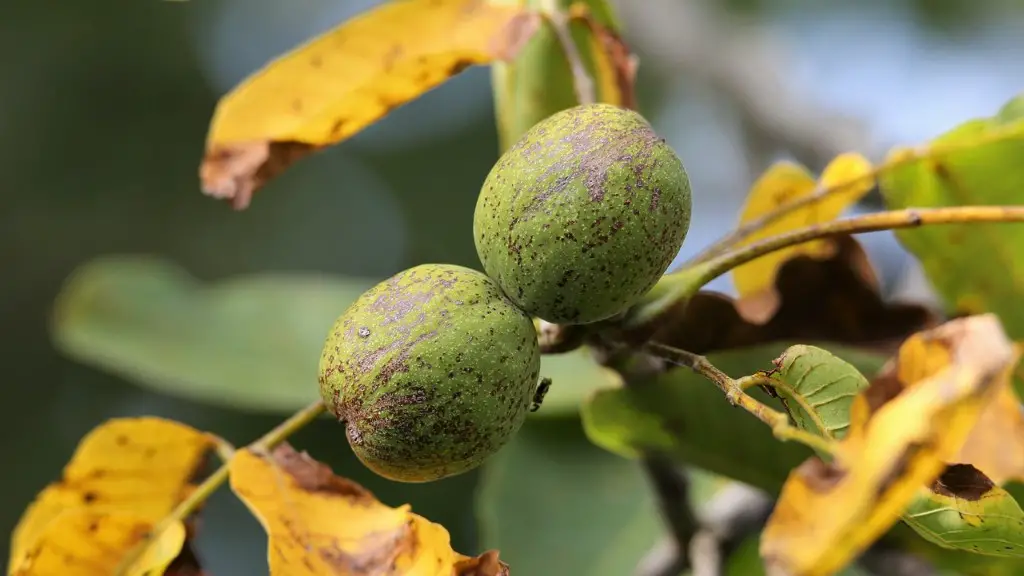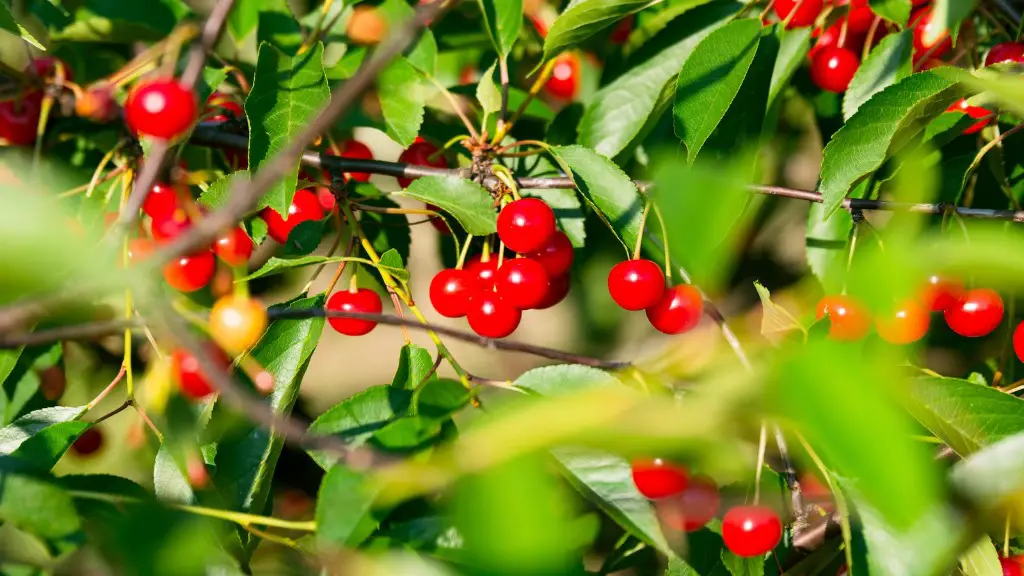An allergy is an immune response to a foreign substance, such as pollen, pet dander, or peanuts. When the body comes into contact with the allergen, it releases chemicals, such as histamines, that cause symptoms such as sneezing, itching, and swelling. Some people are allergic to tree nuts, such as almonds, walnuts, and pistachios. The symptoms of a tree nut allergy can range from mild, such as an itchy mouth, to severe, such as anaphylaxis, which is a potentially life-threatening reaction.
Tree nut allergies are relatively common, affecting about 1 to 2 percent of the population. The symptoms of a tree nut allergy can range from mild (such as itchiness and hives) to severe (anaphylaxis). Anaphylaxis is a potentially life-threatening reaction that can occur within minutes of exposure to an allergen.
Why are tree nuts such a common allergy?
There is a lot of speculation as to why nut allergies are so common, but there are a few theories that stand out. One theory is that people now eat far more nuts and peanuts than they used to. Another theory is that there is a genetic basis to many allergies, but some have to be primed before they have any real effect. Whatever the reason, nut allergies are a reality for many people and can be very dangerous. If you have a nut allergy, it is important to be very careful about what you eat and to carry your epinephrine injector with you at all times.
The proteins in peanuts are very different from those in tree nuts. Therefore, someone who is allergic to peanuts is not automatically going to be allergic to tree nuts.
How do you stop being allergic to tree nuts
Oral immunotherapy (OIT) can be used to treat tree nut allergy in patients of all ages. OIT is a safe and effective treatment to minimize reactions to contact with food allergens, protecting against accidental exposure and empowering patients to eat a balanced, full diet with confidence.
If you have a tree nut allergy, you may be wondering what foods to avoid. Here is a list of tree nuts that you should avoid if you have an allergy:
Almonds
Brazil nuts
Cashews
Chestnuts
Hazelnuts
Macadamia nuts
Pecans
Pistachios
Walnuts
Tree nuts are often used as ingredients in many products such as cereals, cookies, crackers, and ice cream. Be sure to check labels carefully to avoid tree nuts and their derivatives. If you have a tree nut allergy, always carry your epinephrine injector with you in case of an emergency.
Why am I allergic to tree nuts except almonds?
If you are allergic to one tree nut, it does not necessarily mean that you are allergic to all tree nuts. In fact, most people are not allergic to all tree nuts. This is because tree nuts can contain similar problematic proteins. This is true of almonds and hazelnuts, walnuts and pecans, as well as pistachios and cashews.
If you have a nut allergy, there are still plenty of delicious and nutritious foods that you can eat. Fruits and vegetables are a great place to start, and you can also enjoy grains like rice, pasta, quinoa, and oats. Legumes like beans and lentils are also packed with protein, and staples like tofu, tempeh, and seitan are often packaged in nut-free facilities.
Is peanut butter a tree nut allergy?
There are some misconceptions about peanut allergies. Peanut allergies are actually quite common, and they can be very serious. Peanuts are legumes, not tree nuts, and they can cause severe reactions in people who are allergic to them.
There are a variety of nut flavors that are safe for those with allergies, including chestnuts, coconuts, hazelnuts, macadamia nuts, pecans, pine nuts, pistachios, and walnuts. These flavors can be enjoyed by everyone, regardless of their allergy status.
Are cashews a tree nut
Cashews are an excellent source of protein, and are also derived from an evergreen shrub or tree in the sumac family. Although they are commonly called tree nuts, they are actually edible seeds that are shaped like thick, curved beans. Cashews are a healthy and delicious addition to any diet!
If someone is having an anaphylactic reaction, it is important to give them an injection of epinephrine as soon as possible. This will help to reduce the severity of the reaction. It is also recommended to give the person liquid diphenhydramine (Benadryl) at a dose of 5 mg for every 10 lb of body weight, up to a maximum dose of 75 mg.
Can nut allergy go away?
If you have a food allergy, it is important to always be aware of what you are eating and to check labels carefully. Some people outgrow certain food allergies over time, but others may have them for life. Peanut and tree nut allergies are particularly common and can be very serious. If you have any doubts about whether you can eat something, it is always best to err on the side of caution and avoid it.
If you have a peanut allergy, it is important to be aware of the different therapies that are available to help you manage the condition. There is no cure for peanut allergies at this time, but there are some treatments that can help to reduce the severity of reactions in some people. In addition, there are emergency treatments available for severe anaphylaxis. It is important to work with your doctor to develop a plan that is right for you.
Is Avocado considered a tree nut
While avocados are classified as a fruit, they have been found to have similar proteins to chestnuts. As a result, people who are allergic to chestnuts may also be allergic to avocados and should avoid eating them.
If you’re allergic to peanuts, it’s important to be aware of the potential for a life-threatening reaction known as anaphylaxis. Peanuts are the most common food allergen associated with this type of reaction, so it’s important to take steps to avoid them. This may include carrying an epinephrine auto-injector (such as an EpiPen®) in case of accidental exposure.
Is A coconut a fruit or a tree nut?
Coconuts are classified as a fibrous one-seeded drupe. A drupe is a fruit with a hard stony covering enclosing the seed (like a peach or olive) and comes from the word drupa meaning overripe olive.
Different people can be allergic to different tree nuts. Most people will only be allergic to a single protein in a specific variety of nut, but it is possible to be allergic to more than one type of tree nut. If you are allergic to one type of tree nut, it is important to avoid all tree nuts, as it is possible to cross-react with other types of tree nuts, even if you have never had an allergic reaction to them before. If you have any concerns about tree nut allergies, please consult with a healthcare professional.
What alcohol to avoid with nut allergy
Those with an almond allergy should avoid Amaretto, Amadeus, and Galliano. Those with a hazelnut allergy should stay away from crème de noix, Frangelico, and Nocello.
If you have a tree nut allergy, it is important to know which specific nuts you are allergic to. An allergy to one tree nut does not necessarily mean that you are allergic to all types of tree nuts. Some of the most common tree nuts include almonds, cashews, hazelnuts, pine nuts, pistachios, and walnuts. If you are allergic to one of these nuts, you may want to avoid all tree nuts to be safe.
Conclusion
There are several reasons why people may be allergic to tree nuts. One reason is that tree nuts contain oils that can trigger an allergic reaction. Another reason is that tree nuts contain proteins that are similar to those found in peanuts. Peanuts are a common allergen, and cross-reactivity between peanuts and tree nuts has been reported.
There are several reasons why people may be allergic to tree nuts. It is estimated that between 1 and 2 percent of the population is allergic to one or more tree nuts, making it one of the most common food allergies. The proteins in tree nuts are similar to those in peanuts, and people who are allergic to one are often allergic to the other. Other common allergies, such as hay fever, eczema, and asthma, also increase the risk of being allergic to tree nuts.



